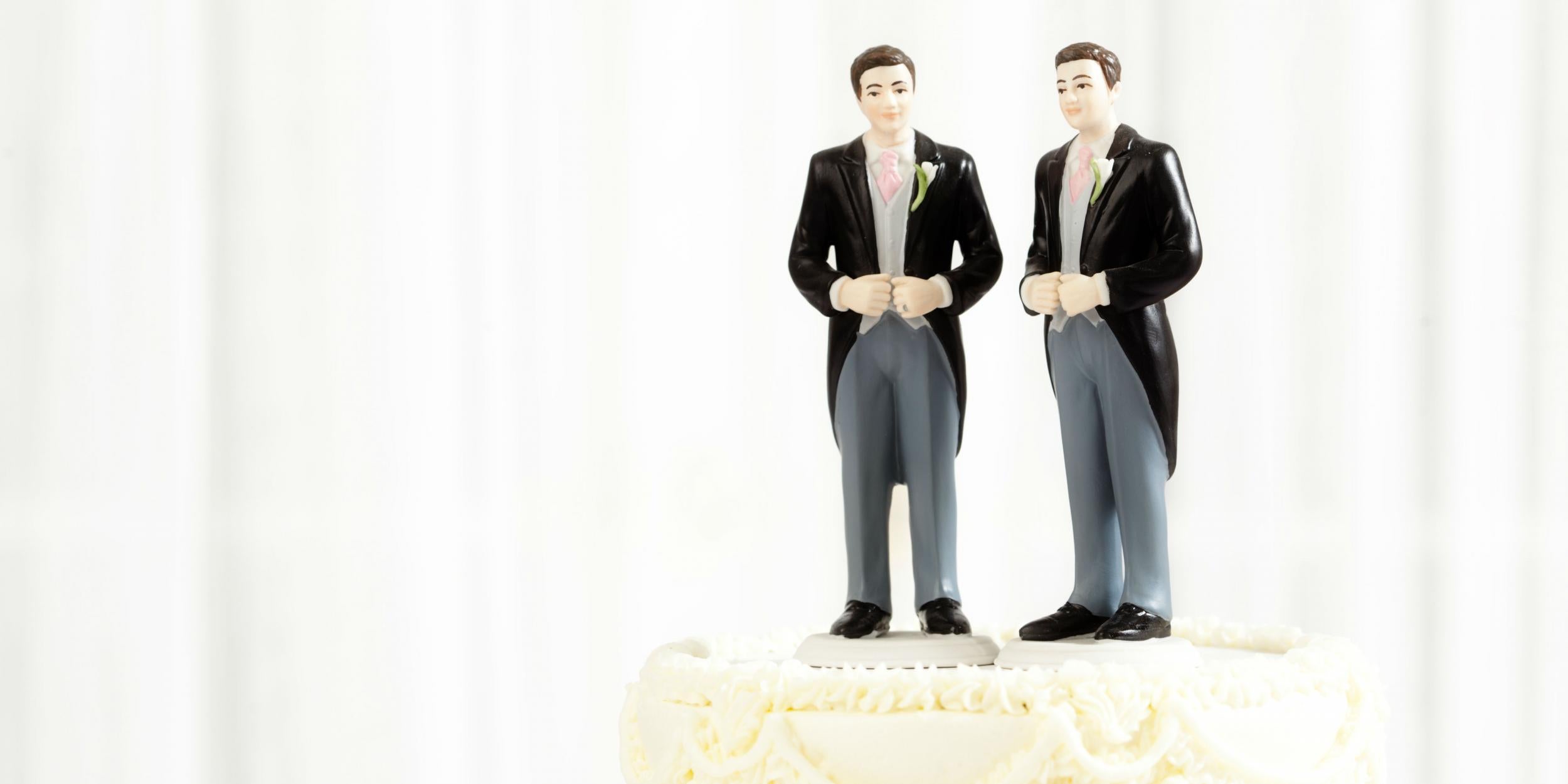The Supreme Court got it wrong – refusing to bake a cake for a same-sex wedding should count as discrimination
Mr Lee’s sexual orientation and the slogan on the cake amounted to the same thing; they can no more be separated from one another than the eggs and flour can be extracted from a cake once baked

Though this is hardly the most important part of the issue, the so-called “gay cake” at the centre of a Supreme Court ruling has a claim to be the most expensive in human history, outstripping by far anything concocted on The Great British Bake Off, for a royal wedding or a presidential inauguration. The original £36.50, duly paid over by Gareth Lee to Ashers bakery in Northern Ireland for the commission, has been dwarfed by the half a million pounds in legal costs it has taken to slice the arguments up in the highest courts in the land. The cake, it seems, will never be delivered.
There have been bizarre qualities to the proceedings – the stormy confluence of evangelical Christianity, Ulster Unionism and LGBT+ rights; the appearance of Bert and Ernie of Sesame Street fame, featured with the slogan “Support Gay Marriage”; and the very notion of a “gay cake”, or indeed gay Muppets.
However, the Supreme Court had an extremely serious task to undertake: an awesome question of balance and equal rights. On the one hand there is the claim by the bakers that they should be allowed to exercise their “sincerely held beliefs”. Amy and Daniel McArthur said they had a right not to be forced to provide a service for an event they did not support, for religious reasons. Against that is the right of the customer, Mr Lee, not to be discriminated against in a business transaction on the grounds of his sexuality.
The Supreme Court’s judgement, at its heart, is that the bakers, in the judges’ words, “would have refused to make such a cake for any customer, irrespective of their sexual orientation”. They go on: “Their objection was to the message on the cake, not to the personal characteristics of Mr Lee. Accordingly this court holds that there was no discrimination on the grounds of the sexual orientation of Mr Lee”.
But there was. As the judges also concede: “It is deeply humiliating, and an affront to human dignity, to deny someone a service because of that person’s race, gender, disability, sexual orientation, religion or belief.” Such humiliation was plainly suffered by Mr Lee and, by proxy, by many others. Mr Lee’s sexual orientation and the slogan on the cake amounted to the same thing; they can no more be separated from one another than the eggs and flour can be extracted from a cake once baked.
The Supreme Court judges, in other words, took an unnecessarily legalistic and restrictive view of their role, and of the spirit and intent of the law. Lay people, and especially (and notoriously) journalists, often misunderstand the purpose of the courts, which is to adjudge points of law rather than make moral or political judgments. Even taking that into account, however, the judges do seem to have landed themselves in a highly abstruse place. Plainly it is not what the equalities legislation was about.
Even so, in making a judgment many will find offensive and difficult to accept, the Supreme Court judges are not, to borrow a phrase, “enemies of the people”. The principle of an independent judicatory has to be respected, even when judgments fall against what seems like common sense or the “will of the people”. For what it is worth, polls show strong support for gay marriage in Northern Ireland, and even the Northern Ireland Assembly has, at the fifth attempt, voted for it (it was then vetoed by the Democratic Unionists).
It is now for the legislators in Belfast, when they resume their work, to admit the wider issue of unacceptably restricted rights of equality in the province, both for LGBT+ people and for women. If the Northern Irish Assembly and Executive cannot or will not resume its duties, then parliament in Westminster should consider the case for UK-wide intervention and clarification of the law. In the phraseology of GBBO, this is a technical challenge that seems to have been beyond the wit of our lawmakers and our judges to get right.
If we are truly committed to equal rights, we should use the publicity around this case as an opportunity to discuss and confront the prejudices against LGBT+ people on our doorstep, of which one wedding cake is only one minor example.

Join our commenting forum
Join thought-provoking conversations, follow other Independent readers and see their replies